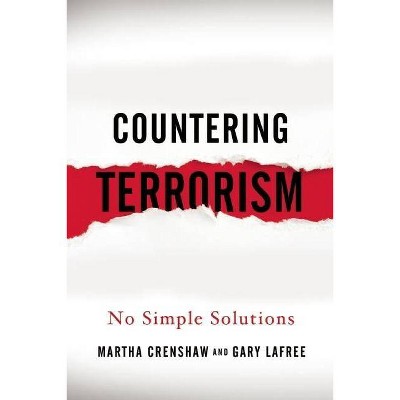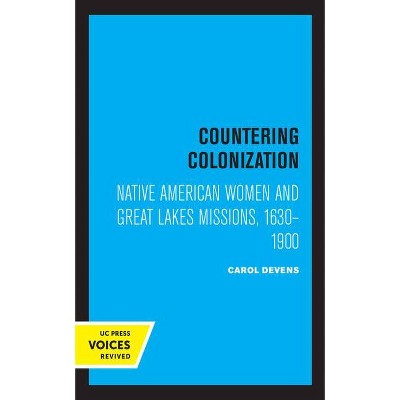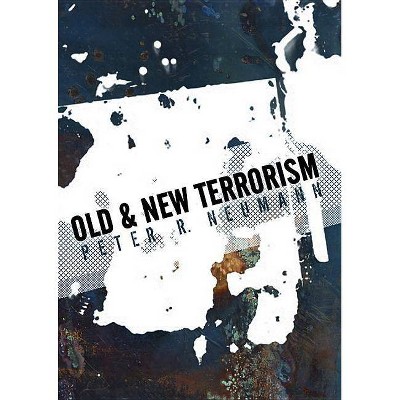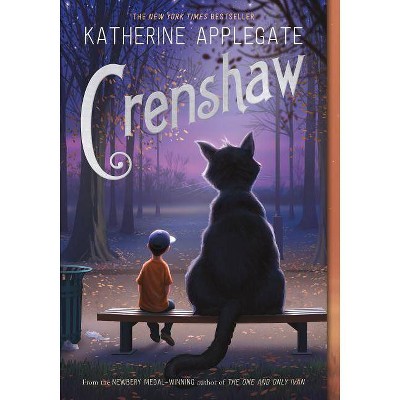Countering Terrorism - by Martha Crenshaw & Gary Lafree (Paperback)

Similar Products
Products of same category from the store
AllProduct info
<p/><br></br><p><b> About the Book </b></p></br></br>Crenshaw and LaFree examine "how we have dealt with the terror threat over the years. They [explore] why it is so difficult to create policy to counter terrorism. The foes are multiple and often amorphous, the study of the field dogged by disagreement on basic definitional and methodological issues, and the creation of policy hobbled by an exacting standard: the counterterrorist must succeed all the time; the terrorist only once"--Amazon.com.<p/><br></br><p><b> Book Synopsis </b></p></br></br><p><i>Can We Construct a Grand Strategy to Counter Terrorism?</i></p><p>Fifteen years after September 11, the United States still faces terror threats--both domestic and foreign. After years of wars, ever more intensive and pervasive surveillance, enhanced security measures at major transportation centers, and many attempts to explain who we are fighting and why and how to fight them, the threats continue to multiply. So, too, do our attempts to understand just what terrorism is and how to counter it.</p><p>Two leaders in the field of terrorism studies, Martha Crenshaw and Gary LaFree, provide a critical look at how we have dealt with the terror threat over the years. They make clear why it is so difficult to create policy to counter terrorism. The foes are multiple and often amorphous, the study of the field dogged by disagreement on basic definitional and methodological issues, and the creation of policy hobbled by an exacting standard: the counterterrorist must succeed all the time; the terrorist only once. As <i>Countering Terrorism</i> shows, there are no simple solutions to this threat.</p><p/><br></br><p><b> From the Back Cover </b></p></br></br><p>Can America construct a grand strategy to counter terrorism?</p><p>Years after September 11, the United States still faces terror threats--both domestic and foreign. Undeterred by wars, ever more intensive and pervasive surveillance, enhanced security measures at major transportation centers, and many attempts to explain whom we are fighting, and why, and how to push back, the threats continue to multiply. So, too, do our attempts to understand just what terrorism is and ways to counter it.</p><p>Two leaders in the field of terrorism studies provide a critical look at responses to the terror threat over the years--and make clear why the task is so difficult. The foes are multiple and often amorphous, the study of the field dogged by disagreement about definitions and methodology, and the creation of policy hobbled by an exacting standard: the counterterrorist must succeed all the time; the terrorist only once.</p><p/><br></br><p><b> Review Quotes </b></p></br></br><br>This is an important academic and public policy analysis of the role of the "conceptual and empirical requirements of defining, classifying, explaining, and responding to terrorist attacks" in "crafting effective counterterrorism policy."--Dr, Joshua Sinai, <i>Perspectives on Terrorism</i><br><br>A substantial contribution to the literature on terrorism and counterterrorism.--Paul Pillar, Nonresident Senior Fellow, Center for Security Studies, Edmund A. Walsh School of Foreign Services, Georgetown University <p/>A corrective to oversimplified analysis. The scholarship is sound and the book is a welcome offering from two scholars whose knowledge and credentials are superlative.--Audrey Kurth Cronin, Professor of International Relations, American University, and author of <i>How Terrorism Ends: Understanding the Decline and Demise of Terrorist Campaigns</i><br><p/><br></br><p><b> About the Author </b></p></br></br><p><b>Martha Crenshaw</b> is a senior fellow at the Center for International Security and Cooperation (CISAC) and the Freeman Spogli Institute for International Studies, as well as professor of political science, by courtesy, at Stanford University. She is also professor of government emerita at Wesleyan University and a lead investigator with the National Consortium for the Study of Terrorism and the Responses to Terrorism (START) at the University of Maryland.</p><p><b>Gary LaFree</b> is professor of criminology and criminal justice and director of the National Consortium for the Study of Terrorism and Responses to Terrorism (START) at the University of Maryland. He is a past president of the American Society of Criminology, a member of the Attorney General's Science Advisory Board, and a member of the National Academy of Sciences Committee on Law and Justice.</p>
Price History
Price Archive shows prices from various stores, lets you see history and find the cheapest. There is no actual sale on the website. For all support, inquiry and suggestion messagescommunication@pricearchive.us



















